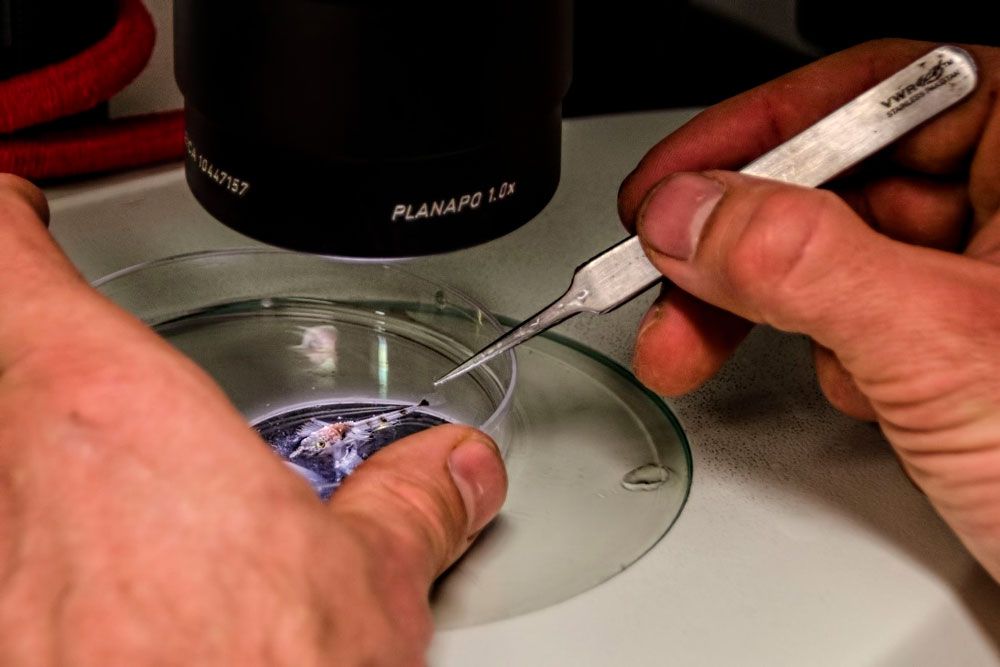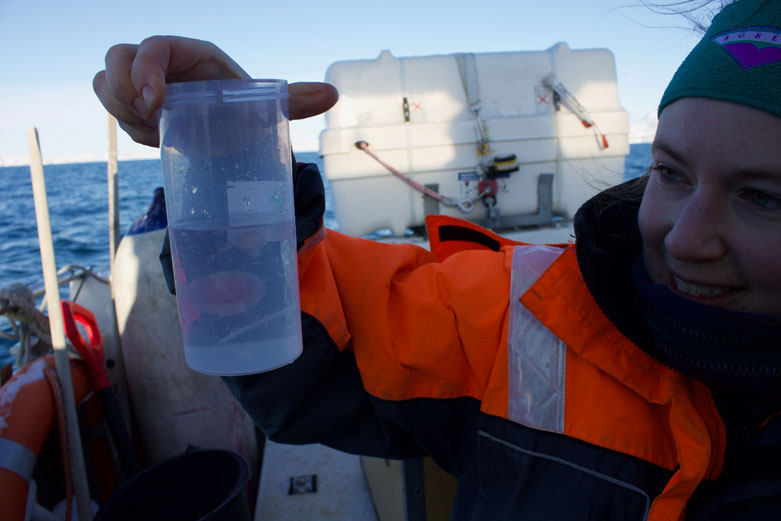Larval Fish Ecology

For marine fish, the fate of eggs, larvae and juveniles may be more important than what happens later in life. Indeed, small differences in survival rates during early life can result in large fluctuations in the recruitment and abundance of populations. Studying the relationships between environmental parameters and larval feeding success, growth and survival are thus crucial to understanding fish population dynamics and predicting their response to climate change and other anthropogenic pressures. Our approach is to focus on species of traditional, commercial and ecological importance for Greenlandic society and other countries, and to assess the impact of physical and biological factors on key early life processes. Ultimately, the information gained from this research will help to improve stock assessment and science-based fisheries management in Greenland.



